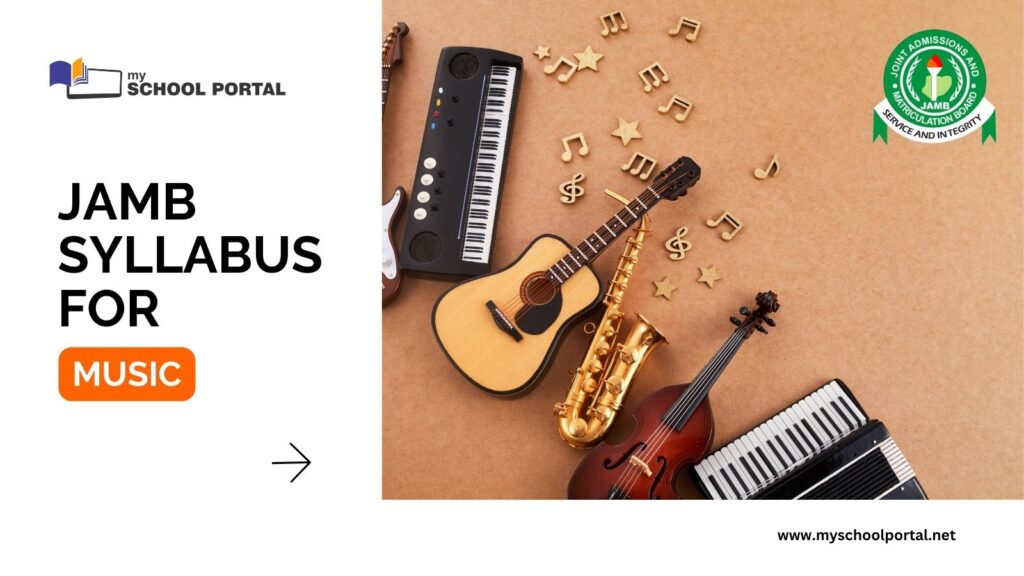The JAMB syllabus for Music is created to guide candidates in their preparation for the Unified Tertiary Matriculation Examination (UTME). It outlines the course objectives and essential topics in Music that candidates are expected to cover to ensure comprehensive preparation.
Objectives of the JAMB Music Syllabus
The syllabus is designed to help candidates:
- Appreciate and Discuss Music Fairly and Critically
Candidates are expected to develop the ability to analyze and discuss various forms of music with fairness and critical understanding. - Identify Features of Western and African Music
Through written analysis, candidates will learn to recognize the characteristics of music from different historical periods, understanding both Western and African music traditions, their forms, and the media used in their production. - Understand the Influence of Socio-Cultural Factors on Music
Candidates will examine how socio-cultural elements affect the lives and works of musicians and their compositions, particularly in Western and African contexts.
Core Areas of Study in the JAMB Music Syllabus
The syllabus covers a range of essential topics in music, categorized as follows:
- Musical Forms and Media
- Forms of music in African and Western traditions.
- Musical instruments and their uses across different cultures.
- Music genres and styles (classical, traditional, modern, etc.).
- Music Theory
- Notation and sight-reading: understanding musical symbols and writing.
- Scales, intervals, and chords.
- Melody, harmony, and rhythm in African and Western music.
- Key signatures and time signatures.
- Music History
- The development of Western music from the medieval period to the present.
- African music history, with emphasis on various cultural practices.
- Influence of religion, politics, and social movements on music.
- Contributions of notable composers and musicians in Western and African traditions.
- Musical Appreciation and Criticism
- Methods of listening and analyzing different forms of music.
- Critical evaluation of musical works based on structure, technique, and cultural relevance.
- Understanding the emotional and intellectual impact of music.
- Socio-Cultural Influence on Music
- The impact of cultural, religious, and political environments on musical compositions.
- The role of music in ceremonies, rituals, and other social events in African and Western societies.
- Study of music as a tool for societal change and cultural expression.
Benefits of the JAMB Music Syllabus
- Comprehensive Study Guide: The syllabus gives candidates a clear overview of the major topics they need to focus on, ensuring they cover the essential aspects of Music.
- In-Depth Understanding: It provides specific details about what is expected in each topic, allowing candidates to deepen their knowledge and understanding of both Western and African music traditions.
- Recommended Texts: The syllabus includes a section on recommended texts, listing Music books (titles, authors, and editions) that candidates can consult to further enrich their knowledge and enhance their preparation.
By following the JAMB Music syllabus, candidates can better organize their study time, target key areas of Music, and increase their chances of success in the UTME examination while also gaining a greater appreciation for the cultural and intellectual significance of music.
Related
Stay updated with the latest student resources and insights from My School Portal! Subscribe to our newsletter for fresh content delivered straight to your inbox—no spam, just value 😊














